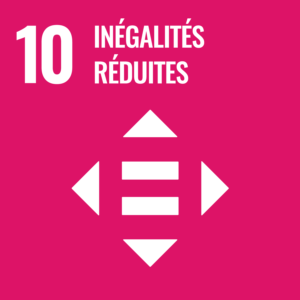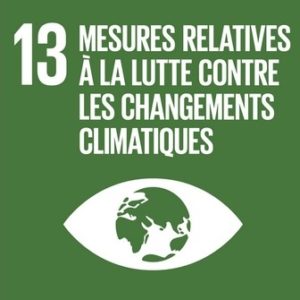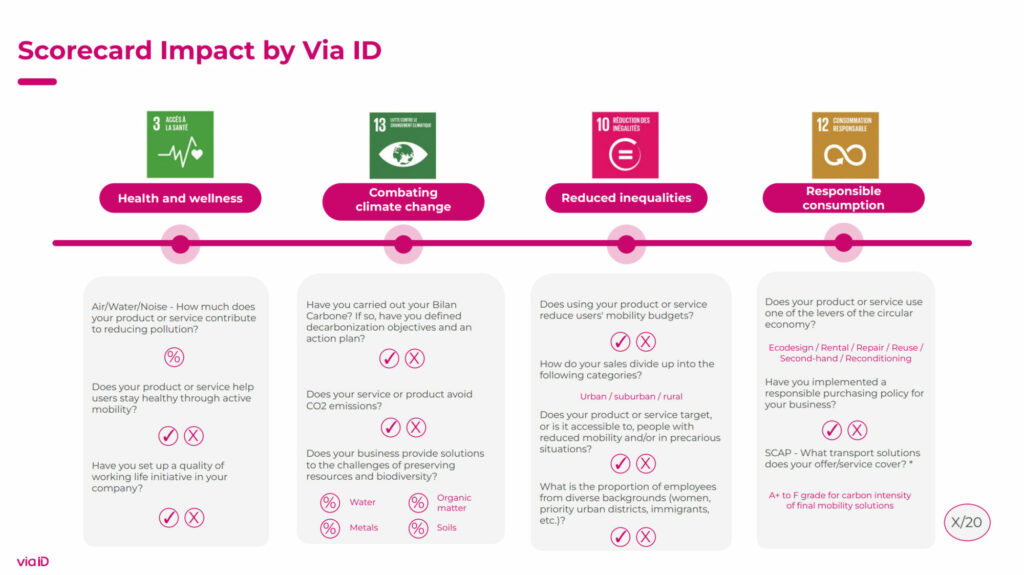

Investment Manager
How does a Corporate Venture Capital entity evolve into an impact-driven investor? Originally established to support innovative businesses for sustainable mobility within Mobivia’s ecosystem, Via ID navigated a strategic transition towards impact investing.
What factors have motivated this shift? With a firm commitment to sustainability, Via ID aligns its investment strategies with specific Sustainable Development Goals (SDGs), raising pertinent questions about the role of venture capital in driving positive environmental and social outcomes.
As regulatory frameworks evolve and market trends shift, how does Via ID navigate this changing landscape? This introspective exploration not only illuminates Via ID’s pioneering efforts but also underscores the broader industry trend towards integrating purpose into investment practices.
Via ID’s impact involvement
First and foremost, it is important to know that Via ID was created to identify and support innovative businesses for sustainable mobility, a mission at the core of Mobivia’s purpose, our parent company leader in the aftermarket automotive industry: opening sustainable mobility to all.
Mobivia is committed to contributing to carbon neutrality by 2050 (“below 2°c” strategy) and achieving a 16% share of its positive turnover by 2025. In response to these compelling challenges, Via ID decided to align its impact strategy with 4 Sustainable Development Goals (SDGs) closely tied to Mobivia’s core activities:

SDG 3: Good health and well-being.

SDG 10: Reduced inequalities.

SDG 12: Responsible consumption.

SDG 13: Climate action.
Via ID’s impact strategy has 3 main objectives:
-
1Manage the extra-financial performance of Via ID
-
2Accelerate the development of European players committed to sustainable mobility accessible to all through our startups programs and investments
-
3Inspire and influence the automotive and mobility ecosystems in their transitions trough business intelligence and lobbying
In addition to this, Via ID has proudly committed to the Sista Manifesto aiming to enhance women entrepreneurship and fundraising. Also we promote as much as we can women entrepreneurs in our initiatives (kudos to Amelie from Gaya, Asmaa from Velyvelo but also all our inspiring entrepreneurs).
Via ID’s DNA anticipated European market trends and regulations
In the dynamic landscape of venture capital, the influence of regulatory frameworks cannot be overstated, particularly in Europe where sustainability consideration has become central related to the “Green Deal” application in every sector. A significant catalyst for change was the European Union’s Sustainable Finance Disclosure Regulation (SFDR), which became effective in 2021.
SFDR asks financial market participants to integrate environmental considerations into their decision-making processes, with greater transparency and accountability. It introduced a categorization of funds regarding their commitment to sustainability:
- Article 6: Funds without any sustainability focus
- Article 8: Funds actively promoting environmental and/or social impacts
- Article 9: Funds prioritizing sustainable investments as their core objective
For venture capital funds, alignment with SFDR has become essential to secure funding, reflecting the growing significance of sustainability in investment strategies, while more and more LPs are looking for impact-related investments.
Via ID, as a Corporate VC, is not bound by these requirements, our decision to transition into an impact fund was deliberate and logical since our commitment for sustainable mobility has always been a priority since our creation in 2010.
Transitioning VC approach from nice-to-have to must-have impact
The shift toward impact investing is a strong evolution for VCs, moving beyond mere financial gains to target both profitability AND social/environmental impacts.
The mobility sector is at the center of everyone’s daily routine, it is a domain where the impact approach is quite essential: if cars and vans represent around 15% of all the EU’s CO2 emissions (see. Euromonitor), innovations are already propelling the development of cleaner, more efficient transport solutions.
According to the State of European Mobility Startups 2023 report published by Via ID and Dealroom, the transition to Electric Mobility stands out as a pivotal sustainable mobility trend, attracting 66% of mobility funding in Europe.
Our impact DNA in everyday operations, from screening to investment
Via ID has set impact goals related to this strategy. For the investment team, this Impact DNA is infused in our daily essential tasks:
1. Regular updates of our investment thesis
To stay attuned to the evolving trends in the mobility landscape, Via ID has iteratively updated its investment thesis.
From initially focusing on micro mobility in the 2010s, our scope has expanded to encompass broader sustainable mobility initiatives today. We’ve placed a heightened emphasis on circular economy principles and integrated all our areas of focus —such as data-driven solutions and mobility services— with impact as the first filter for any new investment.
Today, we proudly identify ourselves as an impact fund dedicated to advancing sustainable urban mobility.
2. In-depth impact analysis by design
Following every management meeting, each investment opportunity undergoes a comprehensive evaluation using our internal Impact ScoreCard. This assessment relies on the four SDGs mentioned above, alongside the Paris Agreement Compatibility Score (SCAP), an indicator developed by the Net Zero Initiative in collaboration with Carbone 4.
It measures the alignment of a solution with a low-carbon trajectory (i.e., the 2°C trajectory outlined in the Paris Agreement).
Thanks to our Impact ScoreCard, we aim at:
- Ensuring that investment opportunities align sufficiently with Via ID’s impact aspirations.
- Identifying areas for improving the impact of the upcoming invested company during the post-investment phase, which are then addressed through targeted action plans.

3. Active participation in impact ecosystems
The climate tech sector is experiencing remarkable growth, supported by numerous dedicated ecosystems across France and Europe. We actively participate in sustainable events (ChangeNow, Drive to Zero and so many others), seeking to contribute meaningfully to environmental and social impact debates and to meet the changemakers of the sector.
Each year, as cofounder of the European Startup Prize for Mobility, the biggest acceleration and investment program for European mobility startups, we support the most promising clean mobility founders in their European expansion.
Via ID coordinates a +150 experts network (investors, corporates…) willing to support the development of sustainable mobility solutions. Last year, we received +700 applications, helping us in keeping our edge in understanding innovation in mobility.
Finally, our CEO David Schwarz participates with our CIO Léa Dégardin at the “CEC”, “Business Convention for the Climate” dedicated to the financial world. The purpose of this program is to identify how our business model, as CVC, can evolve to become a regenerative model. They have just started the program, we will be happy to share with you our learnings and actions plan related in the next few months.
4. Integration of Impact into Incentive Structures
While some venture capital firms index carried interest to impact targets, as a Corporate VC, we structure our annual bonuses around three core criteria: People, Planet, and Profit. This ensures that impact considerations are integral to our performance evaluations and incentivizes actions that align with our sustainability objectives.